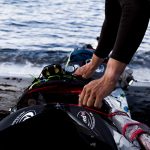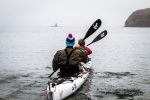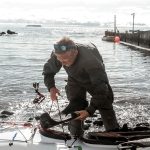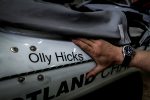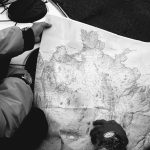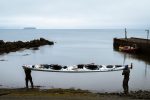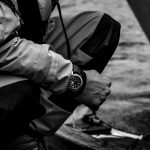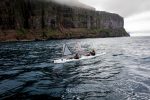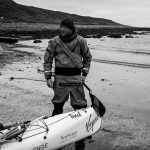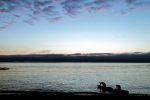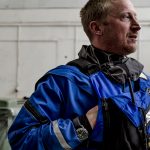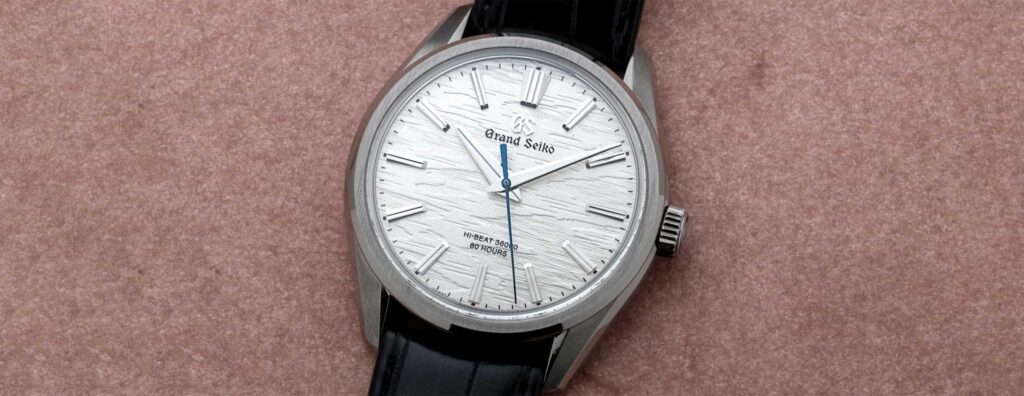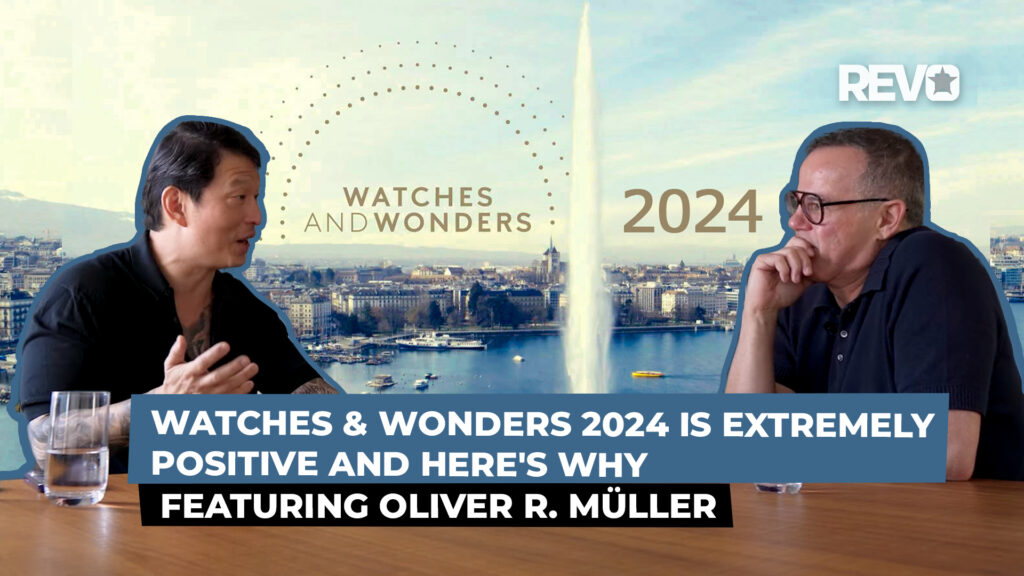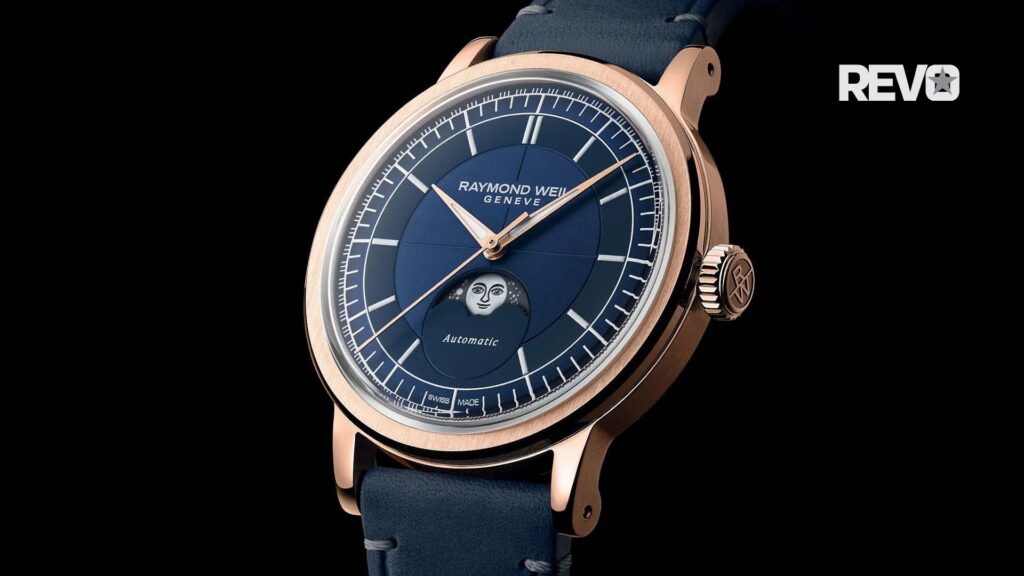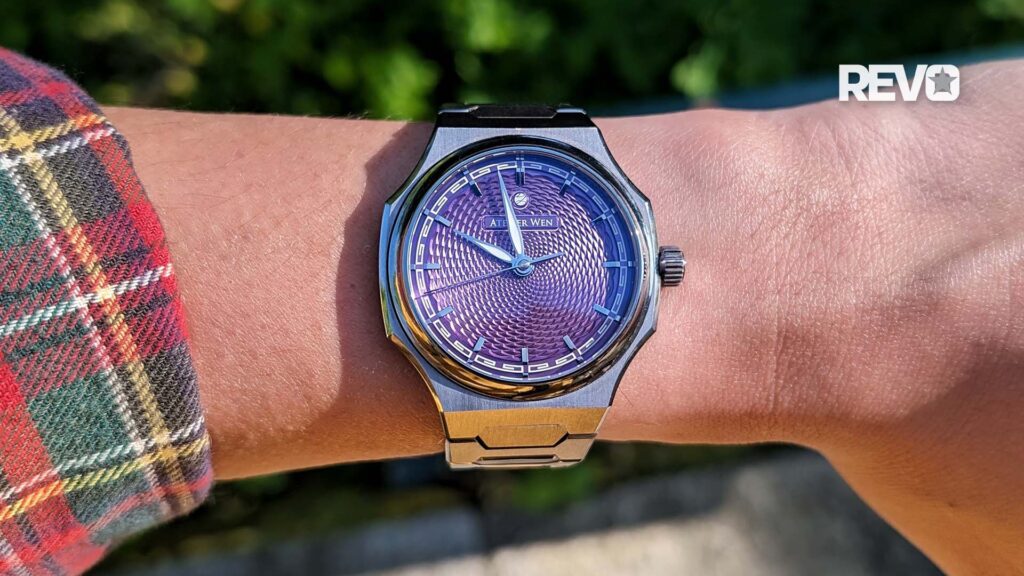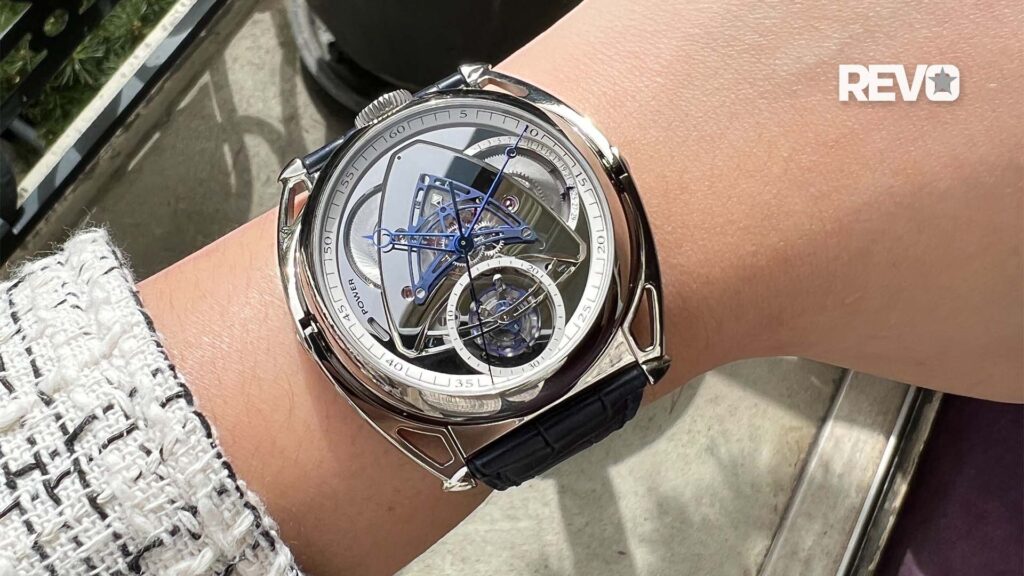Bremont
One watch, One Kayak and 1,200 miles of Open Water
He was also the first to have rowed across the Tasman Sea from Tasmania to New Zealand, through 96 days, alone on the notoriously wild Southern Ocean.
And last year Olly and George Bullard covered 1,200 miles, in 6 weeks, rowing from Greenland to Scotland.
I caught up with the man in a Mayfair coffee shop (a million miles from where he is most comfortable) to discuss mental strength, watches and rowing around the world. It’s fair to say I left the exchange inspired. Not only is Olly a mad man, he is a true gentleman.
I used to love messing around with boats; being in or around water. Growing up at home, we always had dinghies and little fishing boat.
I was obsessed with it. It was 15-foot-long with 6 horse power and in Suffolk we used to potter up and down the river getting stuck in the river banks.
When I look back I guess that’s where the seed was sown. And we were pretty unsupervised and I get that also played a part.
When did you first have the ambition of doing something big at sea?
I first wanted to row across the Atlantic when I was 13 when I read about Samuelsen and Harbo who were the first to row the Atlantic in 1896. As well as Peter Bird who died crossing the Pacific in 1996.
Reading about their journeys really got me into ocean rowing.
Yeah — Robert Falcon Scott, Ernest Shackleton; lots of guys from the great golden age of exploration. I also remember Ranolph Fines coming to talk to us at school when I was about 11. I guess he was recently back from the Trans Globe Expedition — all of which fed the fire.
What was it about those men you admired?
Both my parents were lawyers, and I went to a day school in London. And I guess thinking about it, I may not have been surrounded by inspiring stories.
I wasn’t particularly interested in academics, and we didn’t have a huge amount of opportunity to play sport. What I loved growing up was when we used to go up to the Suffolk coast. That was our own little wilderness to go play in. And that’s maybe why I can relate to these guys. They were either exploring wilderness or wastelands, depending how you see it.
I loved the single-minded determination they had; going to places where there were no maps. Going for years in some cases with the outcome being uncertain. I loved that daring, that optimism — with no communication and just hoping for the best.
I think it’s a natural inclination to want to do stuff. It depends on where that motivations comes from.
As an explorer, if it’s pure motivation to get back to those basic things in life like, being outside, finding food and shelter, seeking new frontiers, then that’s great.
However, on the flip side, you can develop a drive to chase more cash and go work in banking, which for me has never appealed.
For me, the inclination came from wanting to do things that hadn’t been done before. When I was young I loved reading obituaries, and I always thought I’d love to have an interesting obituary one day.
Did any obituaries you read particularly inspire you?
The military ones were incredible. Seemingly ordinary men, doing extraordinary things. They were thrust into the unordinary circumstance of war and carried out huge feats of bravery.
Everyone has some form of a fear to a lesser or greater degree in life. In my mind, I’ve always thought I don’t want to jeopardize my existence and have a safe job and allow my soul to rot for a pay check.
A lot of people tend to exist without passion, and that’s a shame. We don’t have very long here and it would be a shame to waste it. I have a roof over my head and food, so everything else is a bonus.
Do you ever suffer from excessive fear or anxiety ahead of a trip?
I’ve been fortunate enough not to suffer from fear from a physical perspective. I guess that’s because in the planning phase, I don’t dwell on the minutiae of the day to day potential issues.
You effectively break down the steps you need to take if there is an issue. It just gets dealt with.
You bring the right gear and get it clear in your mind. Any fear you may have you can mitigate by breaking down the process that is required, should the worst-case scenario take place.
Fresh food.
What dictates morale on an Atlantic crossing?
Progress.
So, you have a Bremont Supermarine on the wrist, how did the relationship with Bremont come about?
I’d known about Bremont for many years from the adventure world. I met the Nick in London at their boutique a few years back, and we got on incredibly well.
Then during the preparation for the Greenland to Scotland challenge, we decided to team up. It felt like a great fit.
Why the Supermarine?
It was the right tool for the job. It’s Bremont’s dive watch, and they suggested it would be most suited to our trip. It’s super robust and dependable.
It integrated seamlessly into the day to day operations of the row despite being almost permanently wet. It wasn’t always on my wrist either. At times, it was strapped to the deck to time our shifts. Every hour we would stop for 5 minutes, every 5 hours we would stop for 20 minutes and then every 17 hours we would sleep between 2 and 10 hours.
I hear that you are planing to row around the world next, tell us more.
Well first off I genuinely think it will be the world’s toughest race. So, we will set off in December 2018.
We will have 6 identical boats, and we will have 6 competitors to race. We will race from Sydney back to Sydney with one stop in the middle, South Georgia, where we will refuel and wait out the worst of the weather.
Then head back to Sydney which should take 6/7 months. It’s going to be epic.




